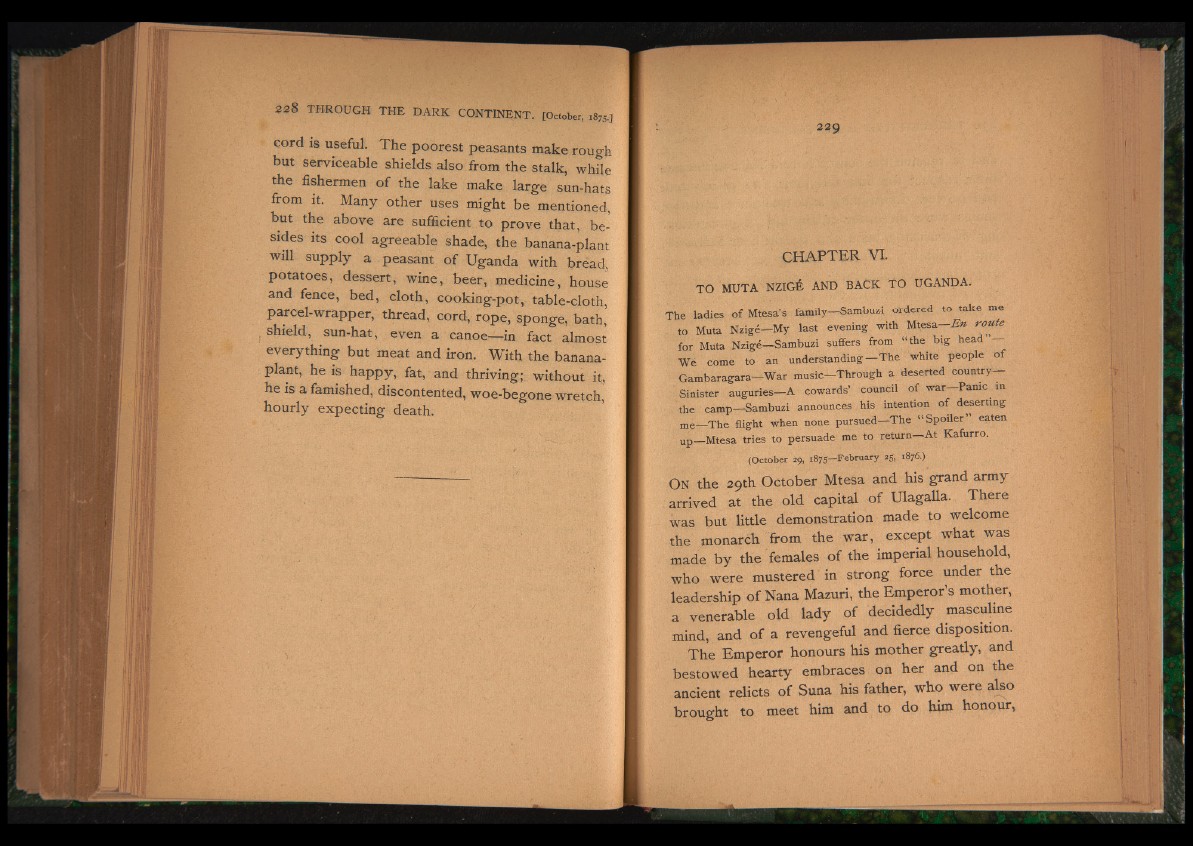
cord is useful. The poorest peasants make rough
but serviceable shields also from the stalk, while
the fishermen o f the lake make large sun-hats
from it. Many other uses might be mentioned,
but the above are sufficient to prove that, besides
its cool agreeable shade, the banana-plant
will supply a peasant o f Uganda with bread,
potatoes, dessert, wine, beer, medicine, house
and fence, bed, cloth, cooking-pot, table-cloth,
parcel-wrapper, thread, cord, rope, sponge, bath,
shield, sun-hat, even a canoe— in fact almost
everything but meat and iron. With the banana-
plant, he is happy, fat, and thriving;, without it,
he is a famished, discontented, woe-begone wretch,
hourly expecting death.
CH A P T E R VI.
TO MUTA NZIGfe AND BACK TO UGANDA.
The ladies of Mtesa’s family— Sambuzi ordered to take me
to Muta Nzige—My last evening with Mtesa—En route
for Muta Nzige—Sambuzi suffers from “ the big head —
We come to an understanding— The white people o
Gambaragara—War music— through a deserted country—
Sinister auguries— A cowards’ council of war— Panic m
the camp— Sambuzi announces his intention of deserting
xsxp— The flight when none pursued— The “ Spoiler” eaten
up—Mtesa tries to persuade me to return— At Kafurro.
(October 29, 1875—February 25, 1876.)
ON the 29th October Mtesa and his grand army
arrived at the old capital o f Ulagalla. There
was but little demonstration made to welcome
the monarch from the war, except what was
made b y the females o f the imperial household,
who were mustered in strong force under the
leadership o f Nana Mazuri, the Emperor’s mother,
a venerable old lady o f decidedly masculine
mind, and o f a revengeful and fierce disposition.
The Emperor honours his mother greatly, and
bestowed hearty embraces on her and on the
ancient relicts o f Suna his father, who were also
brought to meet him and to do him honour,